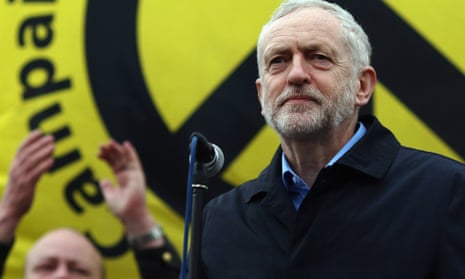At the tail end of the general election campaign, the Daily Telegraph reported that undercover police officers had monitored Jeremy Corbyn for two decades. It was claimed that he had been put under surveillance “amid fears that he was attempting to undermine democracy”.
It was part of a barrage of stories from the rightwing press intended to damage his attempt to win the election.
But those with more sceptical minds are asking a different question – why were the police spying on an elected MP who has been committed to nonviolent protest?
Corbyn has previously said:“I am a democratically elected person and it turns out I was put under surveillance for a long time because I campaigned on human rights issues and was involved in justice campaigns.”
The Telegraph article was based on the testimony of an unnamed former police officer who was quoted as saying that Corbyn was monitored because he was “deemed to be subversive”.
However, the justification for spying on the MP was noticeably thin. The Telegraph said it was unclear exactly why he could have been categorised as a subversive. The former police officer is quoted as saying that Corbyn was not monitored because of his “alleged sympathies with Irish republicans”.
The unnamed officer backed up allegations made by Peter Francis, the former undercover officer who has become a whistleblower.
Two years ago, Francis gave an on-the-record account of how police had spied on Corbyn and a string of other Labour politicians even after they had been elected to the House of Commons. Francis said he had read secret files on 10 MPs while he worked for the Metropolitan police’s special branch in the 1990s. These included Harriet Harman, Peter Hain and Diane Abbott.
Francis was sent to infiltrate anti-racist groups as an undercover officer between 1993 and 1997. He said that during his covert deployment, he collected information about Corbyn and supplied it to his superiors.
The Telegraph suggested that the police monitored Corbyn until the early 2000s – a period that would have spanned his time as an MP after he was elected in 1983.
Following the allegations from Francis, MPs demanded to know why police had been spying on them, prompting John Bercow, the Speaker, to say the revelations were “extremely serious”. Bercow warned: “This matter will not go away.”
These questions may be answered by the public inquiry – led by Lord Justice Pitchford – into the undercover infiltration of political groups since 1968. The inquiry is to examine the extent to which politicians were put under surveillance among other allegations.
The Telegraph article also quotes the unnamed former police officer as saying that the monitoring of Corbyn was approved by several heads of special branch.
Special branch has been a secretive division of the police responsible for monitoring a range of political groups. The head of special branch would have been responsible for authorising the deployments of undercover officers to infiltrate political groups.
So far, during the long-running controversy over the undercover officers, these heads of special branch – who had the rank of commander – have received very little attention. The focus has instead been on the undercover officers who were on the frontline of the covert operations.
The question facing the Pitchford inquiry is whether those in charge of special branch will be pulled out of obscurity and called to account for their decisions – including why Corbyn was spied on.
The police have monitored politicians more recently. They include leading members of the Green party such as Caroline Lucas MP and the peer Jenny Jones.
